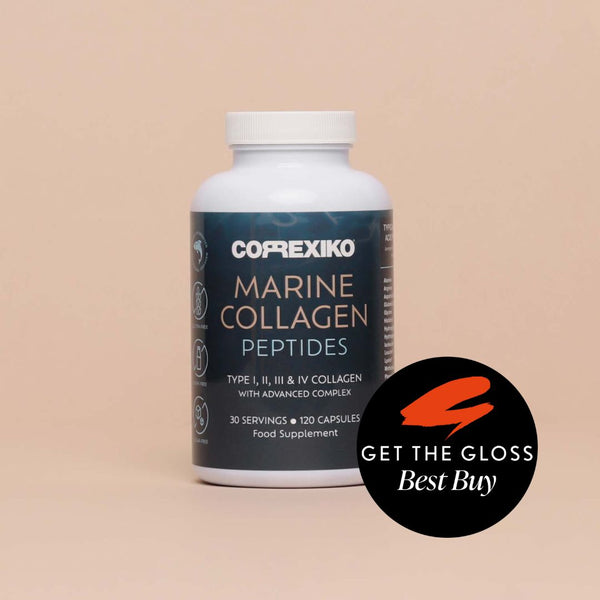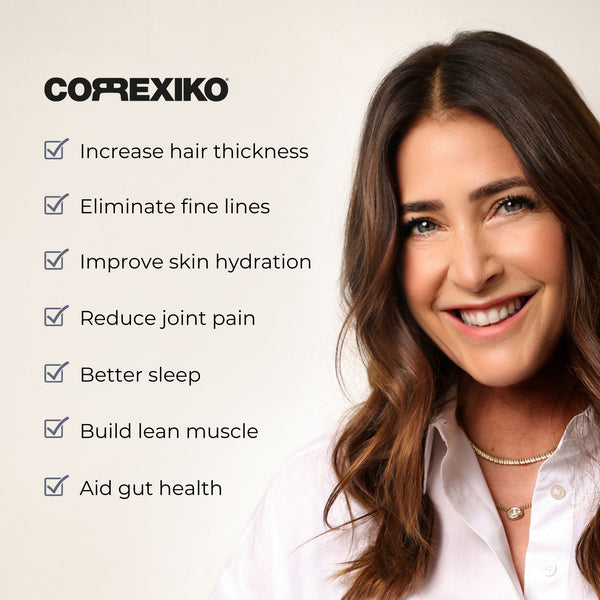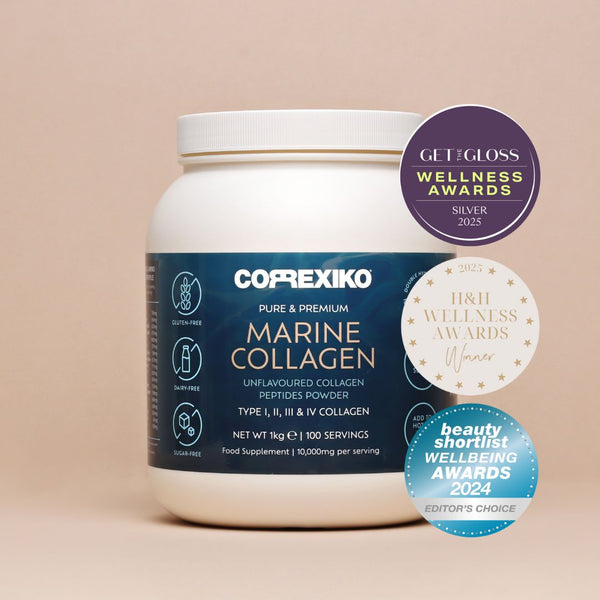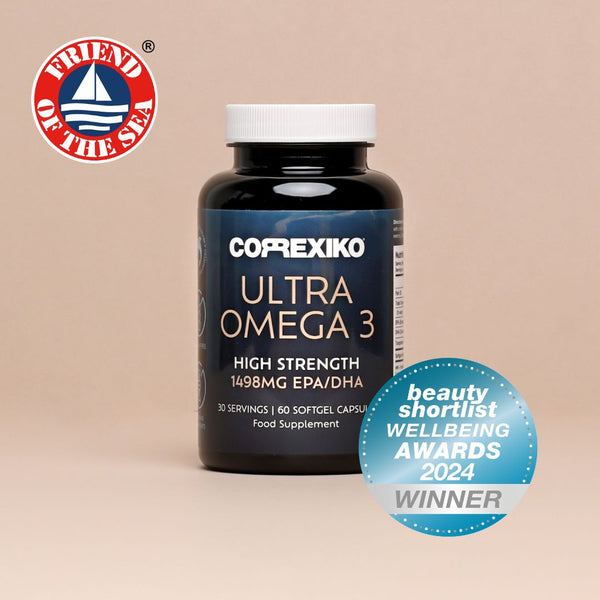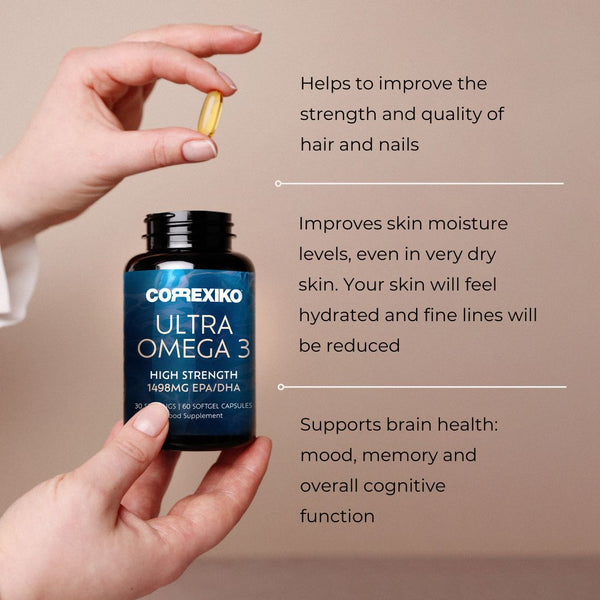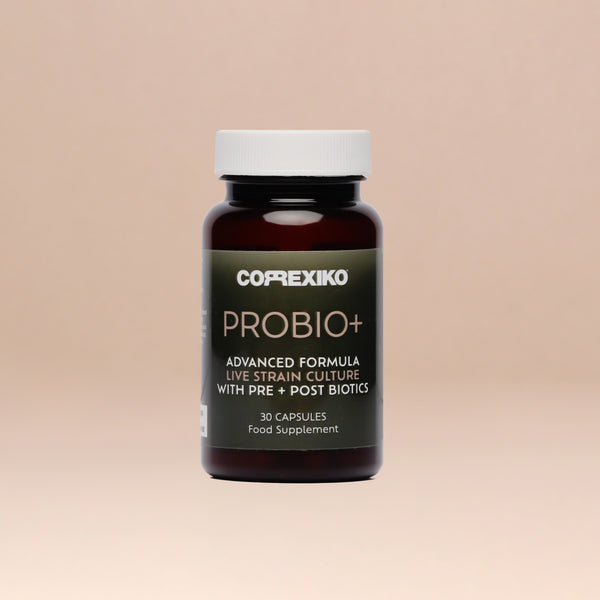Your questions on collagen for menopause were answered by the experts
We asked Dr Datta a London doctor specialising in women’s health, how collagen can help women going through menopause
How collagen can support your skin during perimenopause, menopause and beyond?
As we approach our menopausal years, our levels of collagen and oestrogen fall dramatically, and this can greatly impact the health of our skin, hair, nails and joints.
Whilst moisturisers and sun creams help superficially, taking a look at your diet to help strengthen your skin, hair, nails and joints from the inside out is another key approach to support the changes we see experience during menopause.
With oestrogen and collagen levels declining, you may see more fine lines, sagging and wrinkles. It’s also true that interventions such as exercise, reducing alcohol consumption, and smoking cessation can have an impact on skin health, but there is a great deal of science to prove that supplementing your diet with collagen on a regular basis will help maintain your natural levels, and work towards keeping skin tight and plump and support the quality and health of hair, nails and bones.
Collagen peptides have been shown to improve skin moisture, elasticity and hydration and reduce the roughness of the skin. Studies have also shown that taking regular collagen intake can improve your hair volume and shine.
To get the best out of the collagen supplements you’re taking, make sure you select a double-hydrolysed collagen product which comes from natural, high-quality food sources, such as Correxiko’s marine or bovine collagen. Double-hydrolysed collagen creates smaller collagen peptides which are more easily absorbed by the body so that you can get the benefits faster and is very important for those who have digestive issues to ensure they are absorbing therapeutic levels.
References
Glynis A. A Double-blind, Placebo-controlled Study Evaluating the Efficacy of an Oral Supplement in Women with Self-perceived Thinning Hair. J Clin Aesthet Dermatol. 2012 Nov;5(11):28-34. PMID: 23198010; PMCID: PMC3509882.
https://www.scielo.br/j/rbgg/a/fk95TfhxB7mPsmqYRDdHH8K/?format=pdf&lang=en
König D, Oesser S, Scharla S, Zdzieblik D, Gollhofer A. Specific Collagen Peptides Improve Bone Mineral Density and Bone Markers in Postmenopausal Women-A Randomized Controlled Study. Nutrients. 2018 Jan 16;10(1):97. doi: 10.3390/nu10010097. PMID: 29337906; PMCID: PMC5793325.
Al-Atif H. Collagen Supplements for Aging and Wrinkles: A Paradigm Shift in the Fields of Dermatology and Cosmetics. Dermatol Pract Concept. 2022 Jan 1;12(1):e2022018. doi: 10.5826/dpc.1201a18. PMID: 35223163; PMCID: PMC8824545.
Can collagen help support female intimacy during perimenopause and menopause?
Going through menopause is an inevitable part of a woman’s life, but the symptoms can vary massively. These can include hot flushes and night sweats – but one of the most common symptoms which aren’t often discussed are changes which occur in and around the vagina, affecting sex. Many women are affected by varying degrees of these changes, which can impact our relationships and lives significantly.
So what happens as we approach menopause?
Essentially, our hormonal levels fluctuate, and oestrogen levels fall. Oestrogen helps to maintain the vaginal wall tissue, impacting the smooth muscle and collagen levels within the vagina and skin. Our collagen levels fall as we get older naturally, and this is accelerated by menopause. A fall in oestrogen, collagen and smooth muscle can make the vagina feel dry and tighter, with less natural lubricant, and the skin can feel thinner.
The amount and type of vaginal discharge we make can change, the vagina and the surrounding skin may look paler, and the bacterial balance in the vagina may also change. This can make intercourse uncomfortable, and as time goes by, it can become painful with breakthrough bleeding. This can affect your desire for intimacy.
Skin thinning can mean you are more prone to experiencing infection, pain or irritation, and you may become sensitive to soaps and detergents. Even gentle friction from tight or synthetic underwear can be uncomfortable, and having a smear can be difficult. For some women, bladder function can also be affected, with urinary leakage or “accidents” becoming more common. These symptoms can have a massive impact on the quality of sex, pelvic floor health, your relationships and the quality of your life overall.
What can we do?
Women don’t often discuss these symptoms with their doctor because it’s a difficult topic to discuss, they don’t have time, and many believe it’s a natural part of ageing, with no remedy available. But there are some ways to mitigate these symptoms which are worth exploring. In the first instance, consider how much oestrogen-rich food you’re eating and try to incorporate those into your daily diets, such as pulses, soy and plants.
How does collagen help?
It’s also worth taking a daily dose of collagen peptides to strengthen the vaginal skin and surrounding area - studies have shown that this can make a key difference to your skin. Collagen peptides are quickly absorbed into the bloodstream, pepping up your skin reserves. To make sure you get the maximal benefits, select a trusted brand with high-quality ingredients, such as Correxiko marine of bovine collagen.
References
Naumova I, Castelo-Branco C. Current treatment options for postmenopausal vaginal atrophy. Int J Womens Health. 2018 Jul 31;10:387-395. doi: 10.2147/IJWH.S158913. PMID: 30104904; PMCID: PMC6074805.
Alvisi S, Gava G, Orsili I, Giacomelli G, Baldassarre M, Seracchioli R, Meriggiola MC. Vaginal Health in Menopausal Women. Medicina (Kaunas). 2019 Sep 20;55(10):615. doi: 10.3390/medicina55100615. PMID: 31547180; PMCID: PMC6843679.
Vollmer DL, West VA, Lephart ED. Enhancing Skin Health: By Oral Administration of Natural Compounds and Minerals with Implications to the Dermal Microbiome. Int J Mol Sci. 2018 Oct 7;19(10):3059. doi: 10.3390/ijms19103059. PMID: 30301271; PMCID: PMC6213755


